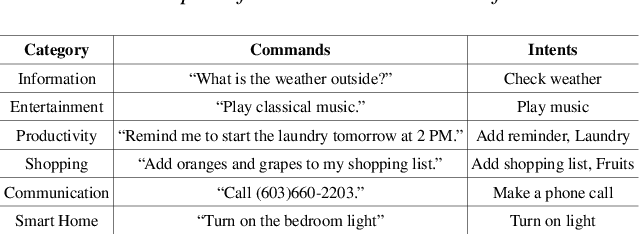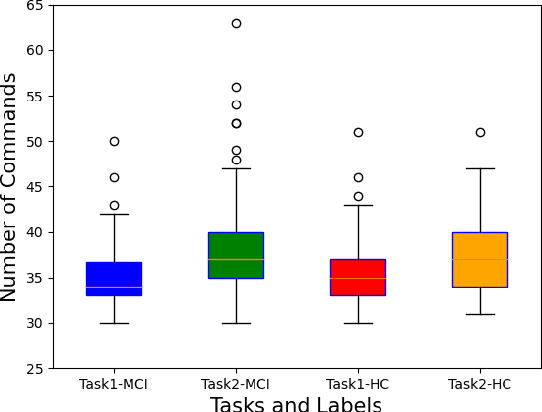Analyzing Multimodal Features of Spontaneous Voice Assistant Commands for Mild Cognitive Impairment Detection
Paper and Code
Nov 06, 2024



Mild cognitive impairment (MCI) is a major public health concern due to its high risk of progressing to dementia. This study investigates the potential of detecting MCI with spontaneous voice assistant (VA) commands from 35 older adults in a controlled setting. Specifically, a command-generation task is designed with pre-defined intents for participants to freely generate commands that are more associated with cognitive ability than read commands. We develop MCI classification and regression models with audio, textual, intent, and multimodal fusion features. We find the command-generation task outperforms the command-reading task with an average classification accuracy of 82%, achieved by leveraging multimodal fusion features. In addition, generated commands correlate more strongly with memory and attention subdomains than read commands. Our results confirm the effectiveness of the command-generation task and imply the promise of using longitudinal in-home commands for MCI detection.
 Add to Chrome
Add to Chrome Add to Firefox
Add to Firefox Add to Edge
Add to Edge